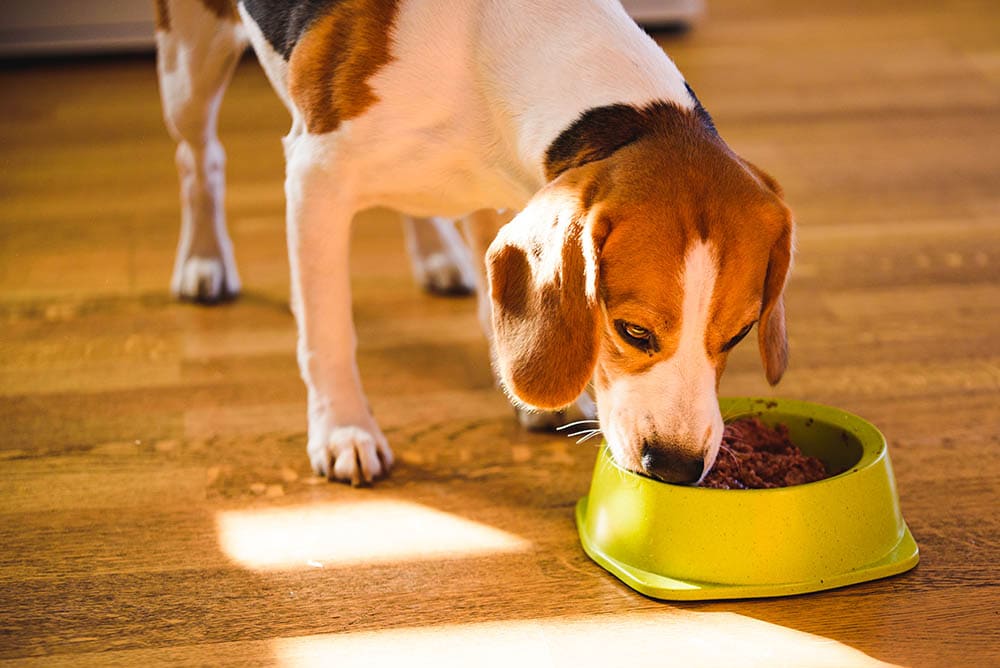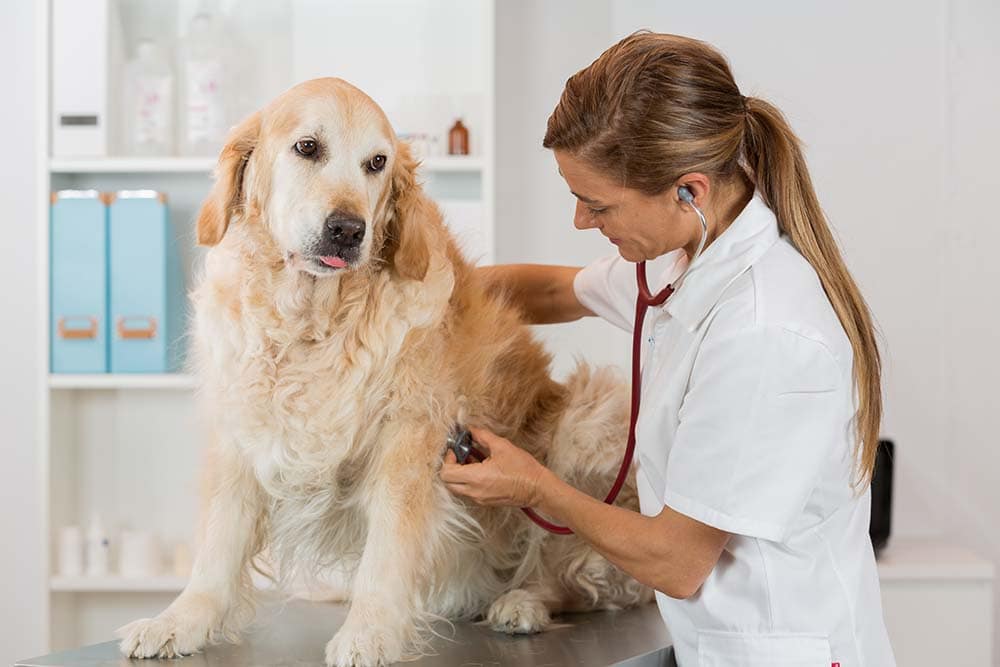Can a Dog’s Food Cause Elevated Liver Enzymes?

Updated on

If your dog is dealing with elevated liver enzymes, it can leave you and your vet trying to figure out what’s going on. Is it coming from the dog food, from a medical condition, or something else in their environment?
If your dog has elevated liver enzymes shown on a blood chemistry profile, your vet will work with you to diagnose and, where possible, to treat the condition. The causes of elevated liver enzymes are numerous and do not always correlate with how the liver is functioning so more testing is likely to be needed.
Can Dog Food Cause Elevated Liver Enzymes?
Yes, it is possible for elevated liver enzymes to result from food but not common.
On occasions dog foods may become contaminated with a mold toxin called aflatoxin. Once this is discovered the food will be recalled. Aflatoxins can cause liver impairment and sadly has resulted in multiple deaths of dogs. This is why it’s extremely important to keep up to date with current recalls of dog foods. If the batch you’re feeding your pup is contaminated, you must stop feeding them the food as soon as possible.
If your dog has an underlying liver problem, foods that are high in copper may make it worse for them. Breeds such as the Bedlington Terrier are predisposed to this type of liver problem.
Can a Dog’s Food Cause Liver Problems?

It is not common for a dog’s food to be causing liver problems, but food is commonly used to help lessen the effects of liver disease.
Over eating and becoming obese can also cause storage of fat in the liver. If dogs go off their food suddenly due to illness these dogs are more prone to fatty liver disease which is very serious.
Some human foods can cause liver problems in dogs due to toxicity. These include chewing gum, candy, toothpaste, or anything with xylitol. Xylitol is highly toxic to dogs.
Signs of Elevated Liver Enzymes in Dogs

If you don’t know what to look for, your pup might have liver problems and you won’t even know about it. According to Pet WebMD, these are the most common signs associated with elevated liver enzymes in dogs.
- Loss of appetite
- Increased thirst
- Weight loss
- Confusion
- Vomiting or diarrhea
- Increased urination
- Jaundice
- Weakness
- Blood in urine or fecal matter
- Seizures
- Build up fluid in the belly (ascites)
- Unstable walk
If your pet is experiencing any of the signs on this list, we highly recommend taking them to a vet for a proper diagnosis and treatment plan.
How Can You Lower Your Dog’s Liver Enzymes?

This is a question your veterinary surgeon will help you to answer as it depends on the cause for the changes. The most common treatments include dietary changes, supplements, antibiotics, and in the most severe cases, surgery.
What Foods Should Dogs With Liver Disease Avoid?
If your dog has liver disease, there’s a good chance that their vet has already given you a recommendation for dog food. However, if you can’t afford a prescription food they may advise you to avoid foods high in copper or with lower protein levels.
Dog foods that have darker meats or salmon are more likely to have higher concentrations of either copper or purines that may need to be restricted in some liver conditions. They may recommend going with a protein choice like chicken or turkey.
If your pet has liver disease, get a dog food recommendation from a vet that fits your budget and your dog’s tastes.

How Long Does It Take for Liver Enzymes to Normalize in Dogs?
The liver has a good capacity for regeneration but it really does depend on the cause of the elevated liver enzymes. If there has been a temporary problem, such as xylitol ingestion, it may take a couple of weeks for all to return to normal. If there is an ongoing medical problem such as Cushing’s syndrome or a hepatic tumor the enzymes may stay elevated.
Conclusion
If you suspect that your dog has liver disease, take them to a vet for a full checkup and diagnosis. They can run tests to let you know what’s going on and to help you get it under control if possible.
The problem could be coming from their food but this is not commonplace. If you suspect that’s the case for your dog, you need to switch their food as soon as possible to try to get everything back under control. Furthermore, if you do find that your dog’s food has a problem, reach out to the FDA to report it.
See also:
- 13 Dog Breeds Prone to Liver Disease: Vet Reviewed Facts
- My Dog Ate Gum! Here’s What to Do (Our Vet Answers)
Featured Image Credit: Przemek Iciak. Shutterstock










